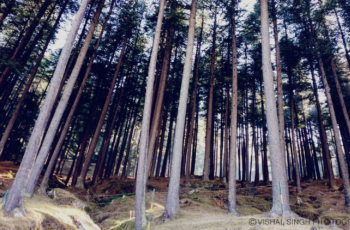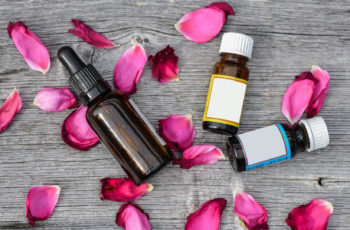While it’s common to develop acne during teenage (as we attain puberty), acne can affect people at any age.
Acne is a small breakout or eruption that may appear on skin due to the blockage of pores – tiny holes in the skin that secretes oil and sweat. These pores consists of oil, dead skin cells, and bacteria. When the skin starts producing oil in large amounts, the pores get clogged by the excess oil and dead skin cells which allows the bacteria to breed and results in the production of acne.
Although acne is not dangerous, it can be painful, causes irritation, and may leave scars if left untreated. This article lists effective home remedies that help reduce acne and minimize its growth.
#1: Apple Cider Vinegar
Apple cider vinegar contains organic acids that helps in fighting acne-causing bacteria and reducing acne scars. However, due to its high acidic nature, it should not be applied directly on the skin. Best way is to create a toner by diluting it with water in a 50:50 ratio. You may also add some aloe vera gel to the toner to maximize its benefits.
- Tip: Buy raw, organic apple cider vinegar that has ‘the mother’ in it.
#2: Tea Tree Oil
Tea tree oil is an essential oil having antibacterial, antifungal, and anti-inflammatory properties.
It is known to fight acne like benzoyl peroxide – the popular over-the-counter anti-acne drug. When applied in diluted form, it lowers the levels of acne-causing bacteria in the skin, reduces inflammation, and prevents more pimples from popping out.
Did You Know?
Over-the-counter drugs or OTC refers to medicines that you can buy without a medical prescription. They are safe to use as long as you follow the directions and warnings mentioned on the label.
#3: Aloe Vera
Aloe Vera is an amazing herb known to heal a number of skin conditions, including burns, dry skin and minor cuts. The gel present inside the leaves of the aloe vera plant consists of anti-bacterial and anti-inflammatory properties that help reduce the lesion and acne scars. Break the aloe vera leave apart, gently press out the gel and apply it directly on the affected area. Leave it overnight and rinse off in the morning. Repeat daily until the lesion heals.
#4: Turmeric
Often termed as ‘the golden spice’, turmeric is a widely used healing herb having powerful anti-bacterial, anti-viral, anti-fungal, and anti-inflammatory properties. The medicinal use of turmeric dates back pretty much 4000 years. It has proven benefits for acne treatment. Mix a quarter teaspoon of turmeric with a teaspoon of raw honey to make a paste. Apply this on the affected area and wash off after 15 minutes. Add a few drops of milk or yogurt to avoid skin staining.
#5: Neem Leaves
Neem is another miracle herb having high medicinal importance in Ayurveda. Apart from being a strong antibacterial, antimicrobial and anti-inflammatory agent, neem aids in blood purification and body detoxification. These properties are immensely beneficial in treating acne and other skin problems such as scars, pigmentation and blackheads. Take a handful of neem leaves and wash thoroughly. Using a mortar and pestle, strain around 2 tablespoon of fresh neem juice. Drink on empty stomach. Repeat on daily basis till you notice the difference.
#6: Lemon Juice
Lemon is a citrus fruit which is antibacterial and slightly astringent in nature. It helps in reducing the oiliness in the skin, thereby preventing the growth of acne that occur due to excessive oil accumulation. It also, is a great source of Vitamin C that helps brighten up the skin or lighten acne scars. Direct application of lemon juice is not advisable as its highly acidic nature may irritate or cause damage to your skin. Mix fresh lemon juice with equal parts of honey and apply the mixture on the affected area. Leave it on for a five minutes and then rinse off with cold water.
Did You Know?
According to the American Academy of Dermatology, acne is a common skin condition affecting more than 50 million Americans annually!
#7: Green Tea
Green tea is well-known for its powerful antioxidant properties. Antioxidants help in protecting our body from damage caused by free radicals (highly reactive compounds that can bind themselves to and ultimately destruct the normal cells in our body). Surprisingly, antioxidants don’t do much for acne treatment, but they do help in reducing the inflammation caused by acne breakouts, especially around the most oil-producing areas on the face, including nose and chin. Direct consumption or topical use of green tea also helps in reducing the lesion and redness caused by acne.
Final Take
Avoid relying completely on natural remedies alone for acne treatment. Use them for relief from pain or irritation and to aid acne healing. Do not use products you are allergic to. Consult your dermatologist to know the root cause of your acne and take proper medication for acne treatment.


